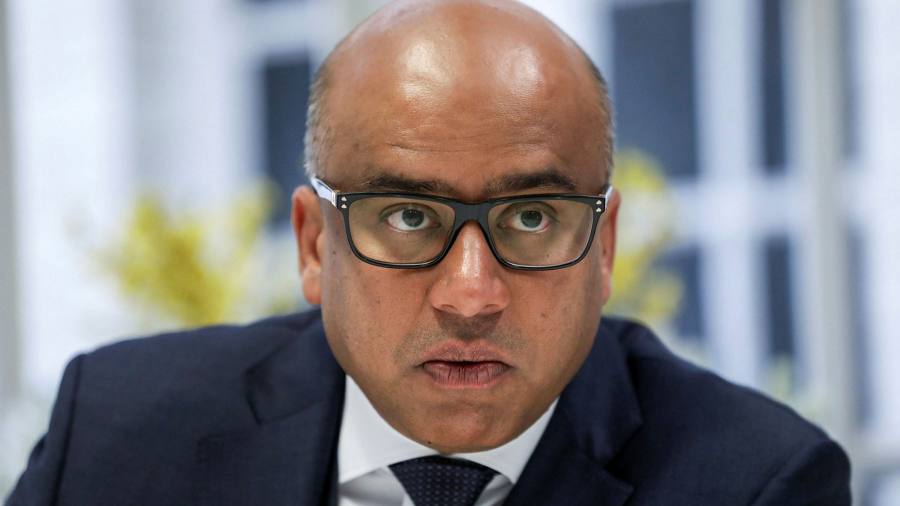[ad_1]
Sanjeev Gupta’s GFG Alliance has stopped making payments to Greensill Capital, the ailing finance group that helped transform the former commodities trader into a leading player in the global steel industry, according to people briefed on the move.
The industrialist told senior colleagues on Thursday that he was not intending to make payments on financing facilities from Greensill, one of the people said, adding that one due on Monday had not been made.
The amount of borrowing that businesses within GFG, a loose collection of Gupta-owned companies spanning metals to banking, have with Greensill is unclear. However, the supply chain finance group, which is backed by SoftBank and advised by former UK prime minister David Cameron, has in recent years provided billions in financing to the acquisitive metals magnate.
The move marks a stunning rupture between Gupta’s GFG and Greensill, businesses whose close links have drawn the scrutiny of regulators. It comes as Greensill prepares to file for insolvency in the UK.
Founded by former banker Lex Greensill, the eponymous group was plunged into crisis this week after its main insurer refused to renew a $4.6bn contract and Credit Suisse froze $10bn of funds linked to the company. Private equity firm Apollo remains in talks to buy parts of the business.
Documents at UK Companies House show that Greensill took additional security over the shares in holding companies above Gupta’s Australian assets on Monday. GFG Alliance and Greensill declined to comment.
The turmoil at Greensill has triggered a wave of concern among GFG’s suppliers, local politicians and unions over its prospects.
Some suppliers to Liberty Steel, GFG’s main metals business, said they were examining their exposure to the group. One said they had tightened their terms of trading and were asking for payment sooner. A second said they were considering asking for cash payments upfront.
Gupta’s relentless dealmaking has turned GFG into an industrial powerhouse, with 35,000 employees from Scotland to Australia. Politicians and trade unions in the UK and Australia were on Thursday scrambling for assurances that Gupta’s companies would not be sucked into the uncertainty.
Rex Patrick, an Australian senator who represents Whyalla, a south Australian town where GFG has a steelworks that employs almost a tenth of its population, said he was worried about the fate of suppliers to GFG.Â
“My concern here is that, obviously, Whyalla is highly dependent on GFG. There are a lot of people working there. And without it, the town will essentially collapse,†he said.
Steve Turner, assistant general secretary at Unite union in the UK, where GFG employs about 5,000 people, said he was seeking an urgent meeting with Gupta. Its members were trying to get a better understanding of the company’s financial position, he said.
The crisis at Greensill comes amid a booming metals market, driven by a rebound in Chinese demand and optimism that the rollout of vaccines will allow the global economy to recover.
John Healey, shadow defence secretary and the MP for Wentworth and Dearne, which includes Liberty’s Rotherham site, said “the order book is still healthy [at Rotherham] . . . as long as the foundation financing remains in place we can be confident of the futureâ€. He added that “the company has a job to do to reassure the workforceâ€.
In a statement this week, GFG said it had “adequate funding for its current needs†and that its “refinancing plans to broaden its capital base and obtain longer term funding are progressing wellâ€.Â
“Our global efficiency drive means that our core businesses are operationally strong. We are benefiting from a recovery in steel and aluminium markets which means that most of our businesses are running at near full capacity to meet high demand and are generating positive cash flows.â€
GFG said its dozens of businesses operate independently, with their own financing arrangements. Those funded by Greensill are scheduled to make weekly transfers, according to people familiar with the matter.
With reporting by Jamie Smyth in Sydney and Neil Hume in London
[ad_2]
Source link






